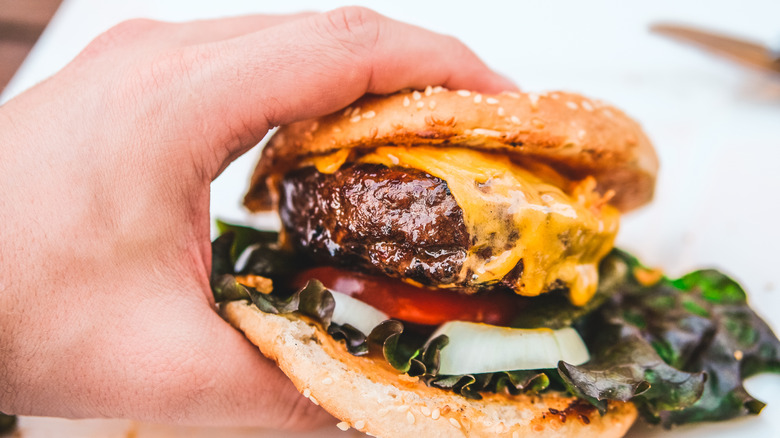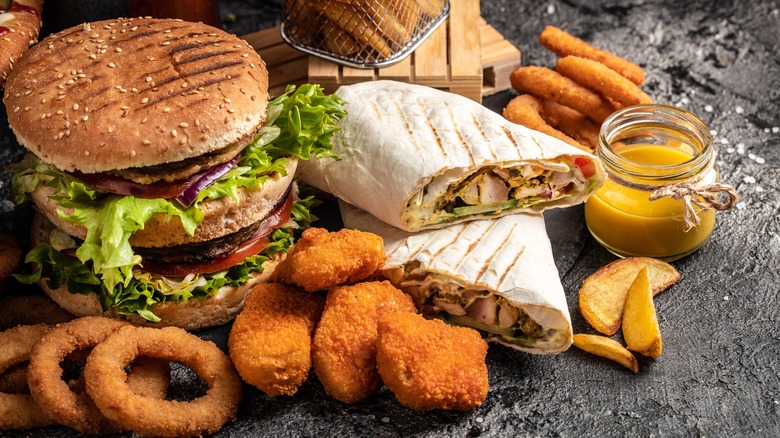Why A High-Calorie Diet Is Essential When You Have Cystic Fibrosis
Cystic fibrosis impacts approximately 30,000 people in the United States, according to Johns Hopkins All Children's Hospital. The disease impacts the body's epithelial cells, located in areas such as the pancreas and lungs, leading to an imbalance of salt and water. In response to this imbalance, the body produces thick mucus. This mucus can then build up in the lungs and other areas of the body, making things like breathing and even digestion difficult.
Kids born with cystic fibrosis show signs fairly early, particularly when it comes to growth and gaining weight (via Mount Sinai). This is partially because of cystic fibrosis's ability to affect the pancreas. The buildup of mucus caused by the disease affects the body's ability to absorb the protein and fats that it needs. This buildup can lead to a number of conditions, including gas, bloating, and distention in the belly. As a result, it can be hard for people suffering from cystic fibrosis to gain weight or maintain a normal, healthy weight. In order to combat the nutritional and weight issues caused by cystic fibrosis, it can be necessary for people affected by the disease to indulge in a higher-calorie diet.
Fatty foods are essential for cystic fibrosis patients
People afflicted with cystic fibrosis require up to twice as much energy as people who don't have the disease, according to the Cystic Fibrosis Foundation. This means that those who have cystic fibrosis should have their daily caloric intake doubled in order to gain sufficient weight to manage the effects of the disease. However, this isn't an excuse to simply pack on the pounds. A 2012 study published in the Journal of Cystic Fibrosis revealed a high intake of saturated fats in cystic fibrosis patients, which can lead to heart disease.
According to Cystic-Fibrosis.com, people with cystic fibrosis should aim to have 40% of their total daily calories come from fat. Healthline notes that a well-balanced diet of fruits, vegetables, protein, and fat is key for cystic fibrosis patients, with the amounts of each increased enough to ensure that the body gets the fuel it needs. High-fat meals like cheeseburgers can be a good option for someone with cystic fibrosis, as is pasta with olive oil, and smoothies with whole milk and peanut butter. In addition, you can take fat-soluble vitamins such as vitamins A, D, E, and K. These can be especially helpful if you're not getting the fat you need from your diet. Before you undertake any diet plan, however, talk with your doctor to make sure you're adding the right amount of fat to your diet to keep you healthy.

